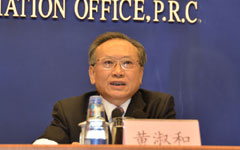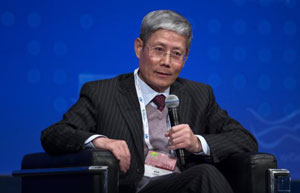Questions on mixed ownership still arise
By Ed Zhang (China Daily) Updated: 2014-04-28 06:35That sounds good, but many people remain doubtful, asking:
Can state capital and private capital really enjoy equal rights?
Can an SOE duly protect its private partners when the board is still dominated by officials representing state interests?
|
 |
|
 |
Can the private-sector members of the board propose the dismissal of a government official-turned CEO on the ground of managerial incompetence rather than political disloyalty?
In the distribution of rights, can private capital increase its share to more than 30 or 35 percent of the equity structure, which is the commonly understood limit?
If it never can, wouldn't this kind of mixed ownership, with its mixed terms always fixed, be yet another kind of cumbersome system that would harm efficiency and hinder competition?
At the same time, who in the private sector has the financial resources to acquire 30 percent of the shares of a giant state-owned industry monopoly?
According to a survey from the recent Boao Forum for Asia, in Hainan province, 90 percent of the private business leaders there said they would not have any influence if they sat on the board of a mixed-ownership company with state-sector officials. Up to 70 percent of them said they still felt uncertain about the current reform policies. And more than half said for the time being they had no plans to seek a state-sector mixed-ownership partner, preferring to wait and see "until the picture gets clearer".
The author is editor-at-large of China Daily.
- Insurance industry struggles to attract recruits
- Stop pork from becoming easy meat
- State Information Center forecasts 7.4% Q2 growth
- Leasing plays little role in world's largest market
- Beijing auto show voices
- Bespoke Rolls-Royce: The only limit is your imagination
- Writing history in the age of the Internet
- Yuan increases amid drop

















